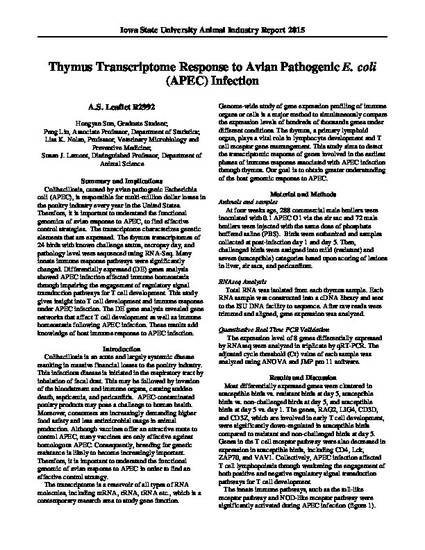
Colibacillosis, caused by avian pathogenic Escherichia coli (APEC), is responsible for multi-million dollar losses in the poultry industry every year in the United States. Therefore, it is important to understand the functional genomics of avian response to APEC, to find effective control strategies. The transcriptome characterizes genetic elements that are expressed. The thymus transcriptomes of 24 birds with known challenge status, necropsy day, and pathology level were sequenced using RNA-Seq. Many innate immune response pathways were significantly changed. Differentially expressed (DE) genes analysis showed APEC infection affected immune homeostasis through impairing the engagement of regulatory signal transduction pathways for T cell development. This study gives insight into T cell development and immune response under APEC infection. The DE gene analysis revealed gene networks that affect T cell development as well as immune homeostasis following APEC infection. These results add knowledge of host immune response to APEC infection.
Available at: http://works.bepress.com/lisa_nolan/79/
